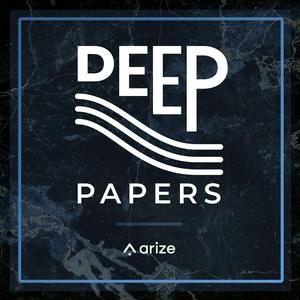We dive into the latest paper from a team of researchers at IBM: "From Benchmarks to Business Impact: Deploying IBM Generalist Agent in Enterprise Production." We're excited to host several of the paper's authors, who walk us through the research and its implications. The paper reports IBM’s experience developing and piloting the Computer Using Generalist Agent (CUGA), which has been open-sourced for the community. CUGA adopts a hierarchical planner–executor architecture with strong analytical foundations, achieving state-of-the-art performance on AppWorld and WebArena. Beyond benchmarks, it was evaluated in a pilot within the Business-Process-Outsourcing talent acquisition domain, addressing enterprise requirements for scalability, auditability, safety, and governance.
CUGA code: https://github.com/cuga-project/cuga-agent
Paper: https://arxiv.org/abs/2510.23856
Learn more about AI observability and evaluation, join the Arize AI Slack community or get the latest on LinkedIn and X.


